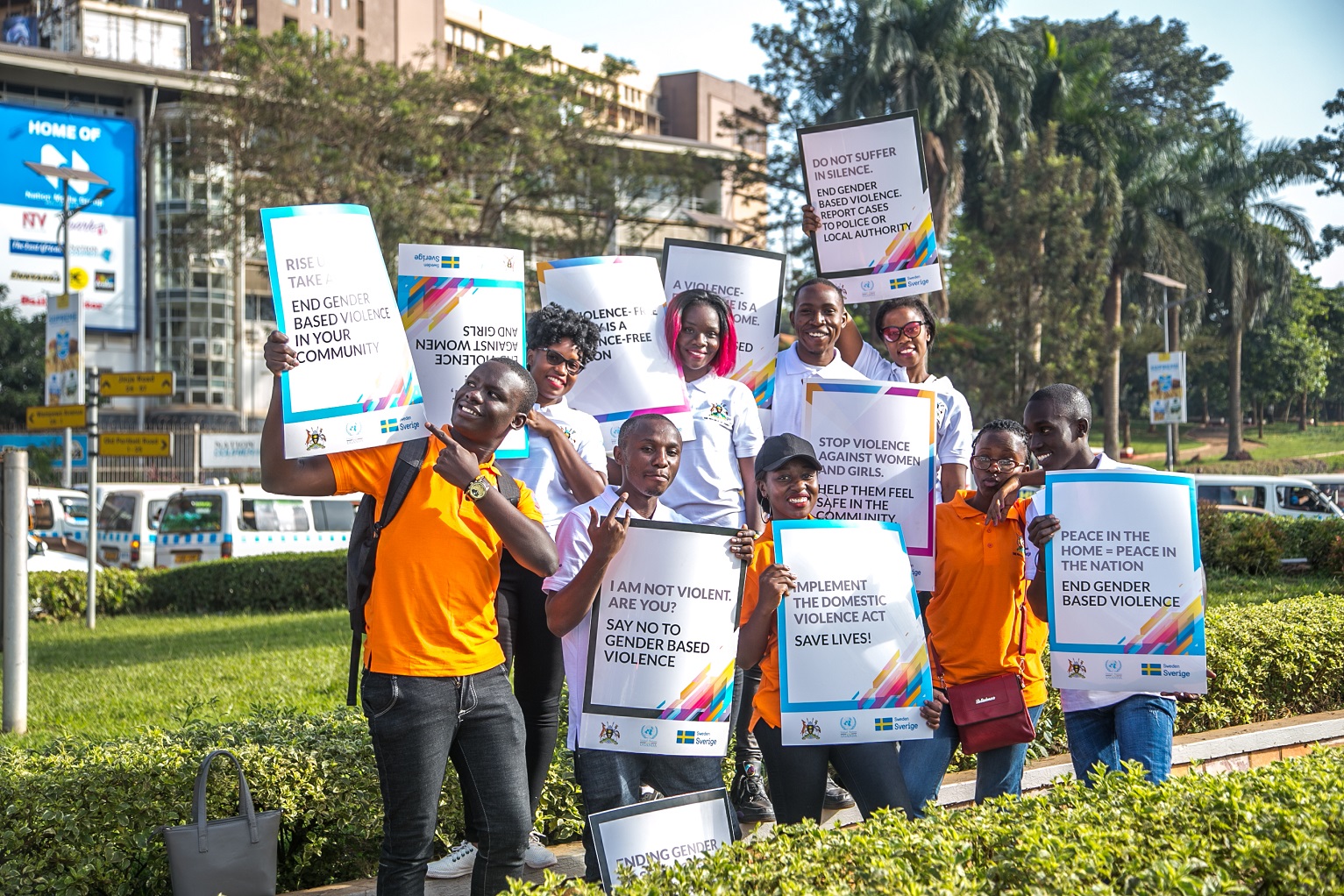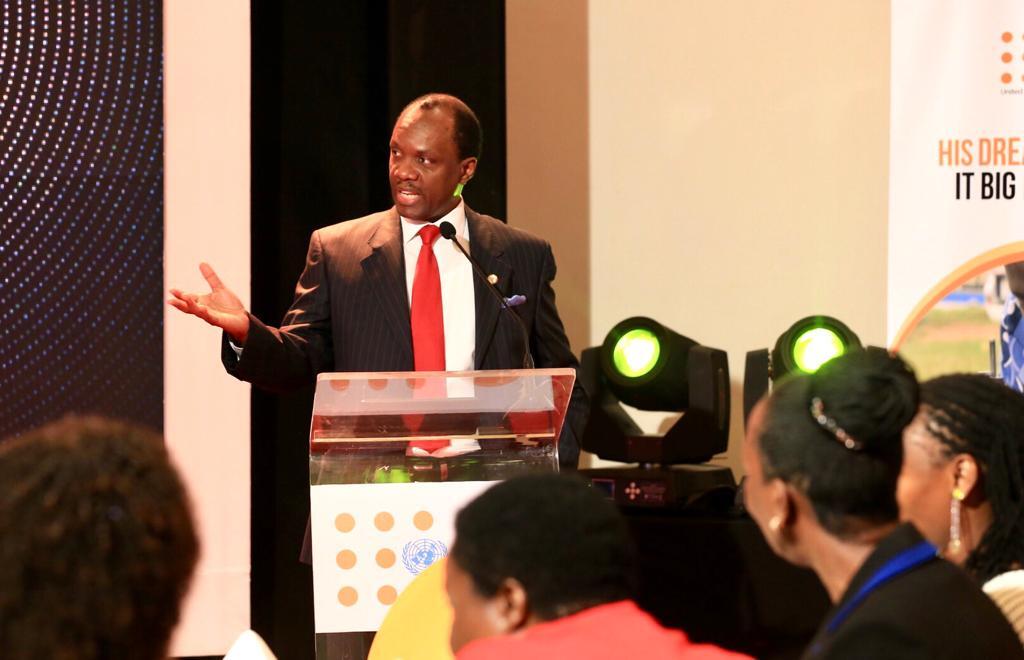UNFPA has established a partnership forum with heads of over 25 private sector companies to address gender-based violence (GBV) at the work place. The Corporate Collective against GBV will bring together private sector companies to work collaboratively with UNFPA to improve their capacity to prevent, mitigate and respond to incidences of GBV.
The initiative is convened by Mr. Patrick Bitature the chairperson of the Private Sector Foundation Uganda. In a keynote address titled “What does Gender-Based Violence have to do with the bottom line?” at the launch on May 22 in Kampala, Mr. Bitature noted that workplace cultures can either promote or challenge negative power and gender norms. “Within our own companies, gender based violence can become “normalized” and seen as a normal, unquestioned, or even part of daily work,” he said.
Bitature explained that incidences of GBV in Uganda have forced women to lose time from paid work, resulting in a cost to the economy of 
approximately $ 20.77 million (about sh78.1 billion). “This is nearly 0.25% of the national budget that our companies did not contribute to the economy due to something completely preventable,” Bitature observed.
More than one in five women in Uganda have experienced sexual violence at some point in their life. Almost six out of every ten women and girls in Uganda think that wife beating is justified. Gender-based violence undermines the health, dignity, security and autonomy of its victims, yet it remains masked in a culture of silence. At the work place, the issue of GBV is even more complex and manifests in form of sexual coercion, discrimination, stigmatization, social exclusion, sexual harassment, intimidation, sexual exploitation, verbal and non-verbal abuse, bullying, withholding information and trafficking for forced labour and sex work.
While sharing their experiences, some of the participants at the launch noted that they already have some initiatives in place that could form the foundation upon which UNFPA can build to institutionalize the activities of the Collective. Hope Kasimbazi, one of the participants noted that the Private Sector Foundation, where she is the outreach and partnership officer, has conducted outreaches and made their member companies sign up to provide better work conditions for women and girls. The company also has a whistle blowing policy that enables employees report misconduct.
VIVO Energy has a similar policy, according to Gilbert Assi, the Chief Executive officer.
The participants appealed to UNFPA to make information about GBV accessible including to those who are employed at the lowest levels in the informal sector.


